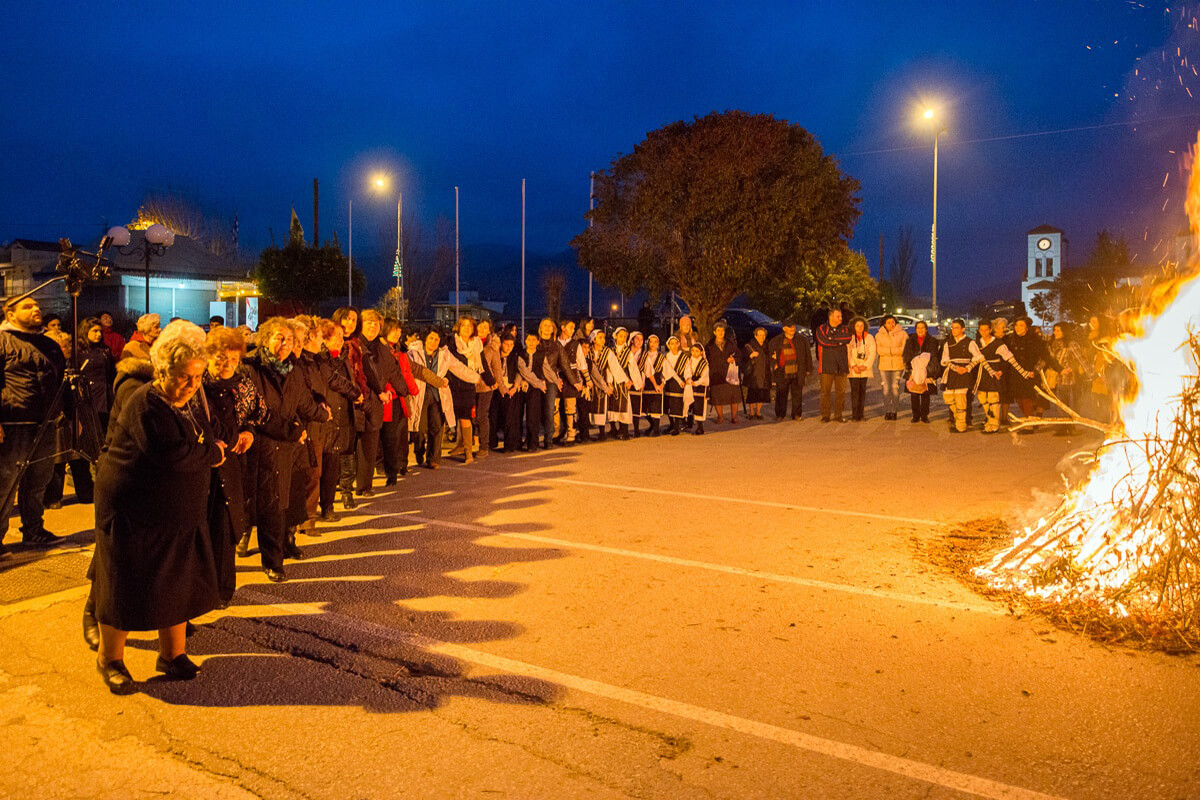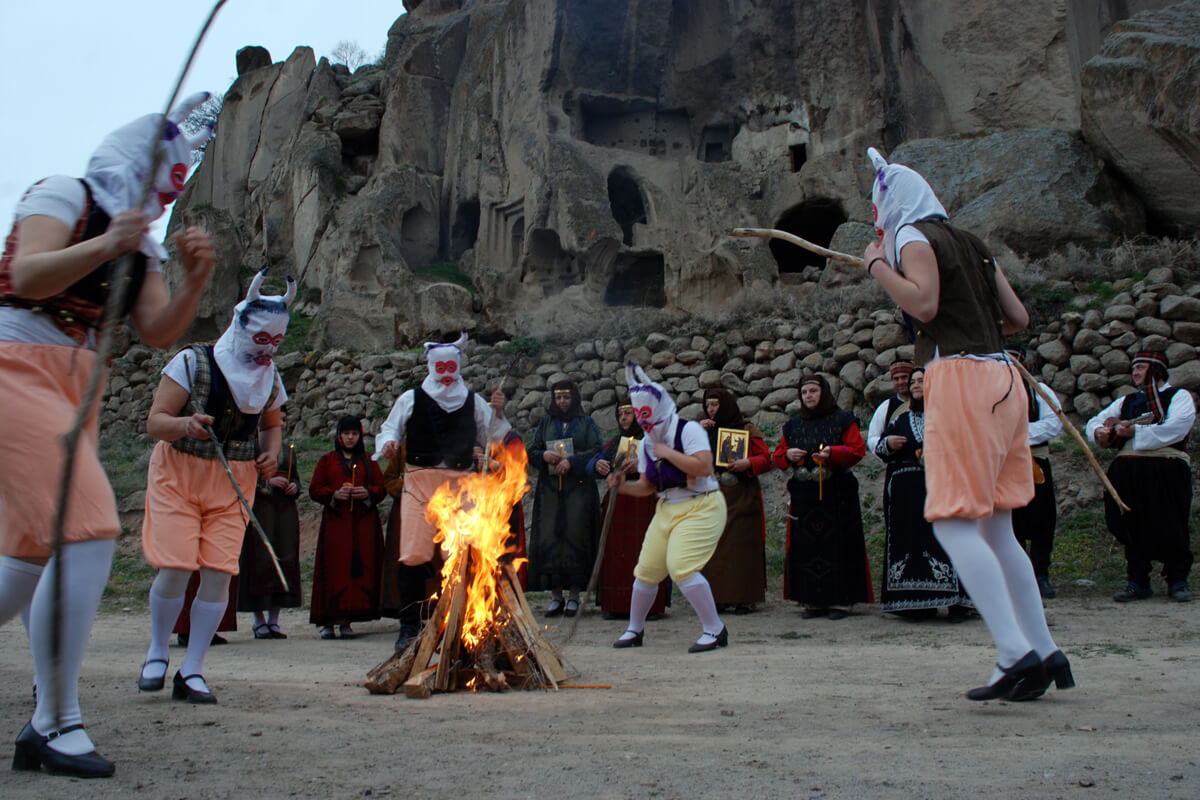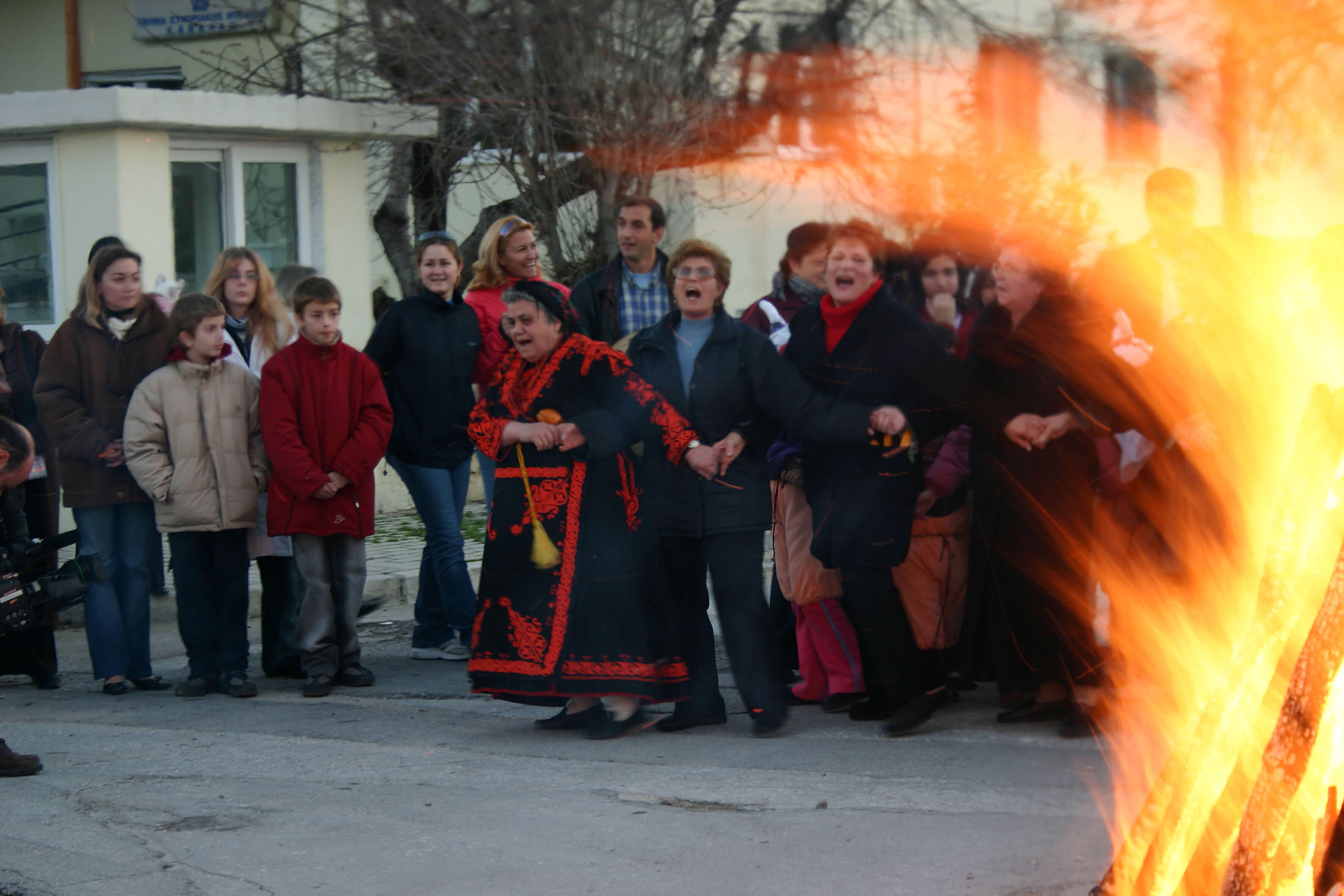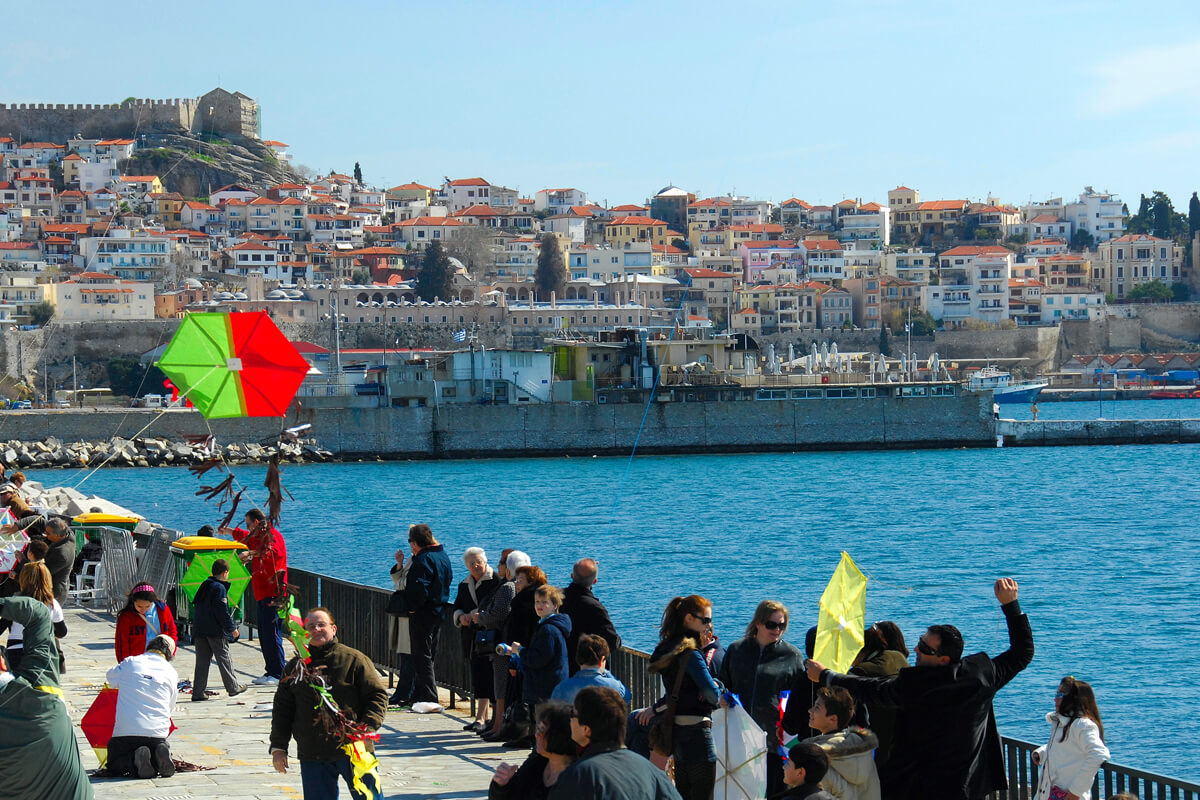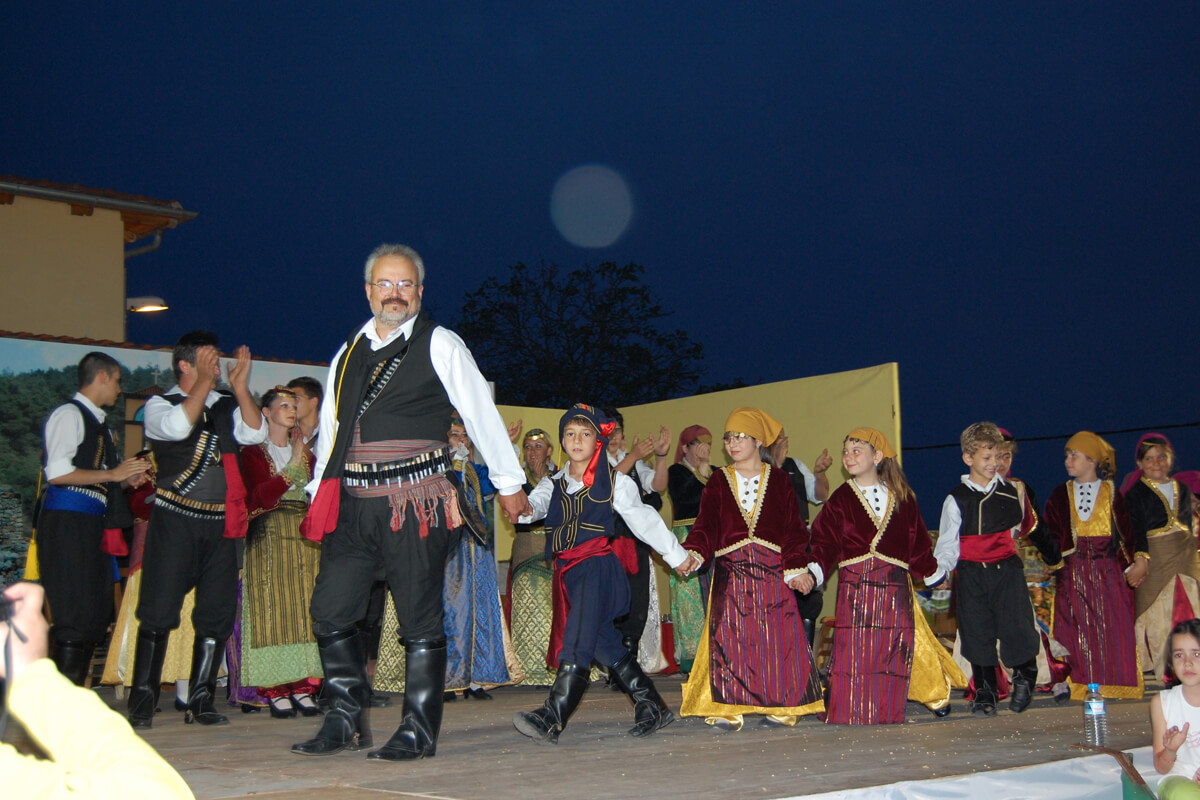From dawn, the faithful would go to the church to get some holy water that they would then take home to sprinkle over their animals, gardens and fields. Some children would then divide up into groups to sing Epiphany carols while others dressed up as a “sagia”. They would take a large item of underwear into which they could climb as far as their necks, with only their heads on the outside. With a pair of horns on their foreheads and a string of large beads and bells tied to this strange garment, they would go to the Greek houses and call out loudly: “The sagia has come, did you hear it?”
In our days, the faithful light a large fire in the evening at the most central point of the village and, holding hands, dance and sing around the fire in order to expel the bad spirits to the bowels of the earth. A little before the fire is lit, they chant all together the Epiphany carols from their ancestral homeland. Because thereis a strict fast on the eve of the Epiphany, the dishes that are offered consist of lentils, pickled beans and “hosafti”, namely compotes made of raisins, prunes or apricots.
